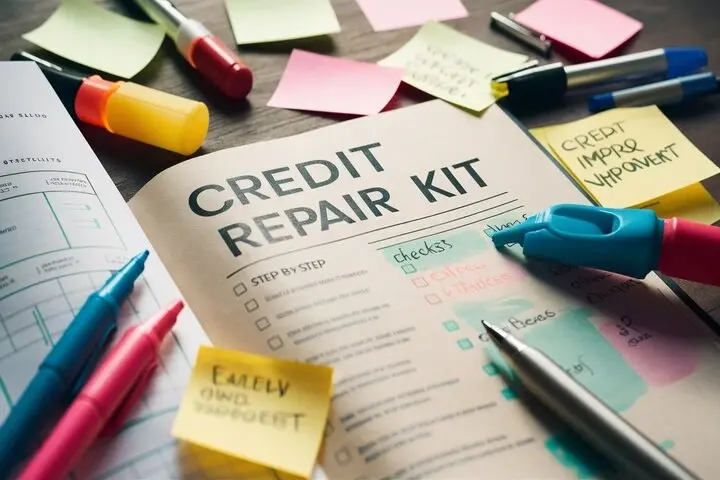-
Posted on: 13 Jul 2024

-
Credit is a critical factor that influences the ability of an individual to access loans, credit cards, and even homes. But with errors or certain eventuality, you find your credit is dented, and borrowing becomes either difficult or costly. However, for the same, you can approach a credit repair company, however, you can do it on your own and save some money as well.
Below are some guidelines to do it on your credit repair.
Check your credit reports
Getting your credit reports from the three credit reporting agencies;—Equifax, Experian, and TransUnion—will be your first chore. Within one year, you are qualified to get one free copy of each report from the AnnualCreditReport.com website. Carefully review the reports, cross-check, and question any material you come across as false, insufficient, or unsubstantiated. If you want to raise your score, this is the most important basis of starting point.
To challenge any errors on your credit report, you should:
If you discover that there is information that is wrong on your reports such as payment that was made later than the due date but you did not make such payment, or account numbers that belong to other people and not to you, you need to dispute the information with the credit bureaus that produced such information. Hand over documents or records such as bank statements or court papers as evidence. Credit bureaus may take up to 30 days to investigate the dispute as mentioned earlier in this article. Ensure follow-ups if the errors are not rectified: The mistakes committed should not be left unaddressed and the follow-ups should be done as soon as possible to avoid further complications. Negative credit marks can be misleading, so when these negative marks are expunged, one can be sure that their credit rating is improving instantly.
Negotiate with creditors
If you owe an organization money that has been written off as bad or you are in arrears and have been taken to collections, try to call the creditors or the collection agencies and try to negotiate. Be willing to negotiate the lesser lump-sum payments if they are willing to remove the negative entries from your credit bureau files rather than updating the account as paid. To ensure that the contractual agreement and fees are clear, this arrangement should be put down in black and blue before the work begins. Clearing or paying any existing credit you have can enable those credit reports to come off your reports based on the seven-year rule.
The best way to improve the credit utilization ratio is by reducing balances and amounts owed on credit cards.
The credit utilization ratio —the real amount of credit you already owe divided by the entire credit limit—is another important factor. Keep the use of each of your credit cards around 10% and avoid having your credit use ratio exceed 30%. By getting more cards or requesting more credit limits on the cards you currently own, you might be able to increase your credit line overall. Try to be as active as you can to pay the sums down; never miss the minimum monthly payment required.
Become an authorized user
Finding a family or acquaintance with good credit standing and asking them to add you to one of the credit card accounts would help you to be an authorized user. Therefore, the card might help prove that one can manage credit as well and thereby get a higher credit rating as long as it is utilized sensibly. The only exception is to review the terms and conditions of issuing a student credit card as some of them do not even record activity on the account of the authorized user to the credit agencies.
This means that the borrower should only apply for credit where he or she is sure that he or she will be able to pay back.
Every time you apply for a credit, an inquiry is made on your credit report and this will affect your score in the process – though for a short while. Thus, when using DIY credit repair, use credit only where necessary and sparingly. It takes at least six months not to apply for a new score when you want the biggest difference in the score. Also, do not apply for credit cards you are not likely to be approved since it reduces your score as seen in the formula above.
DIY credit repair is not an easy process; it requires commitment, time, and consistency but a do-it-yourself credit repair can indeed work. By following these tips, and by monitoring your credit reports regularly, you have the opportunity to regain control and start working towards credit health on your terms. But do be careful of any magical cure out there – change is not easy it takes lots of hard work. It is important to seek assistance when one feels overwhelmed.
Call now for expert credit repair services: (888) 803-7889
Read More:
Is it true that after 7 years your credit is clear?
How can I legally delete my credit history?
Is a 900 credit score possible?
Is national debt relief legitimate?




